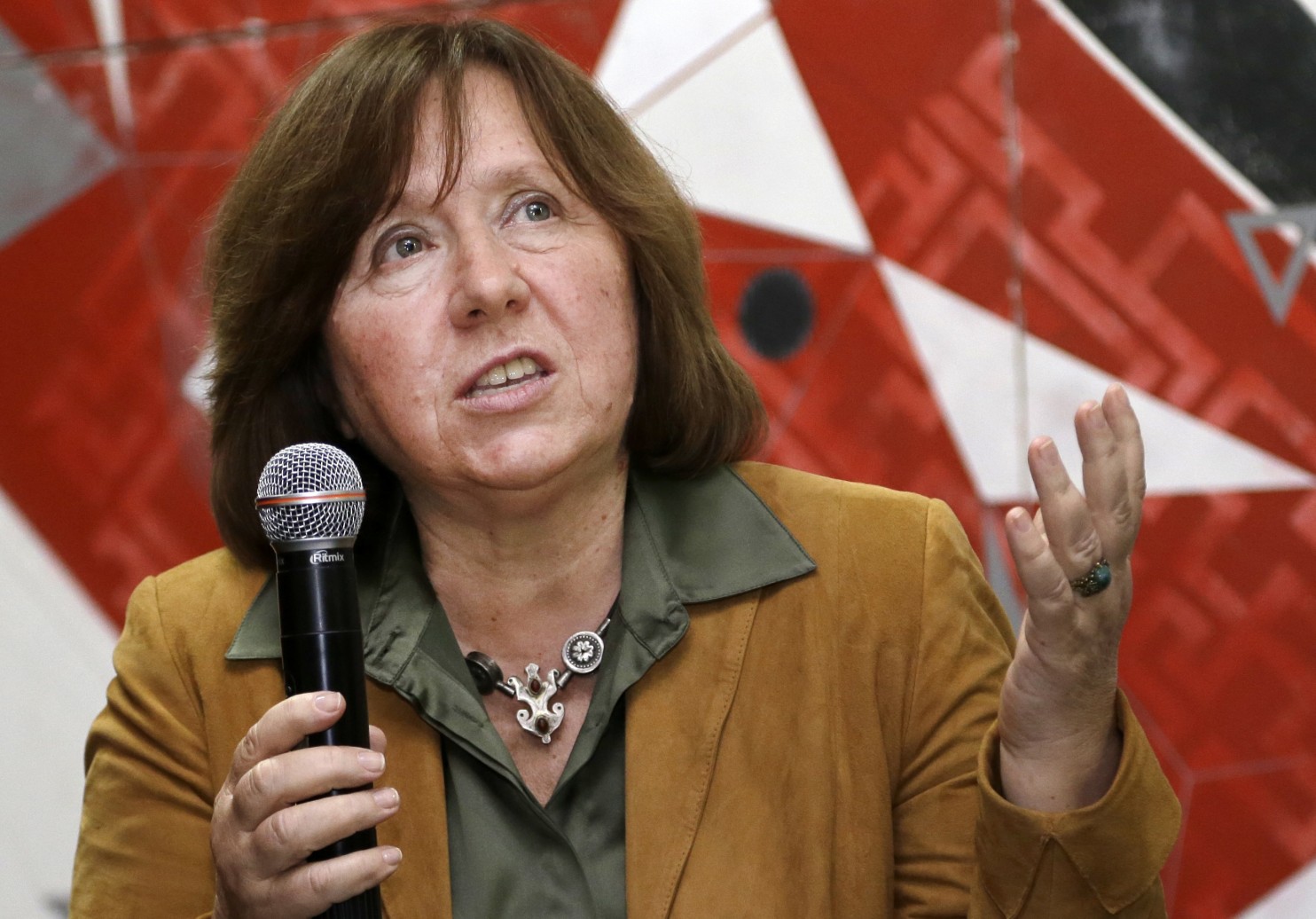Svetlana Alexievich, a Belarussian poet and prose writer, won the Nobel Prize in Literature on Thursday.
The chair of the Swedish Academy, Sara Danius, said her work was a “monument to suffering and courage in our time”.
She goes into history as the 14th woman to win the prize since it was first awarded in 1901. The last woman to win, Canada’s Alice Munro, was handed the award in 2013.
Alexievich was born on the 31 May 1948 in the Ukrainian town of Ivano-Frankovsk into a family of a serviceman.
Advertisement
Her father is Belarusian and her mother is Ukrainian. After her father’s demobilisation from the army, the family returned to his native Belorussia and settled in a village where both parents worked as schoolteachers.
She left school to work as a reporter on the local paper in the town of Narovl.
Alexievich has written short stories, essays and reportage but says she found her voice unde the influence of the Belorusian writer Ales Adamovich, who developed a genre which he variously called the “collective novel”, “novel-oratorio”, “novel-evidence”, “people talking about themselves”, “epic chorus”.
Advertisement
According to Sara Danius, the permanent secretary of the Swedish Academy, Alexeivich is an “extraordinary” writer.
“For the past 30 or 40 years she’s been busy mapping the Soviet and post soviet individual,” Danius said, “but it’s not really about a history of events. It’s a history of emotions – what she’s offering us is really an emotional world, so these historical events she’s covering in her various books, for example the Chernobyl disaster, the Soviet war in Afghanistan, these are in a way just pretexts for exploring the Soviet individual and the post Soviet individual.”
“She’s conducted thousands and thousands of interviews with children, with women and with men, and in this way she’s offering us a history of human beings about whom we didn’t know that much … and at the same time she’s offering us a history of emotions, a history of the soul.”
Advertisement







